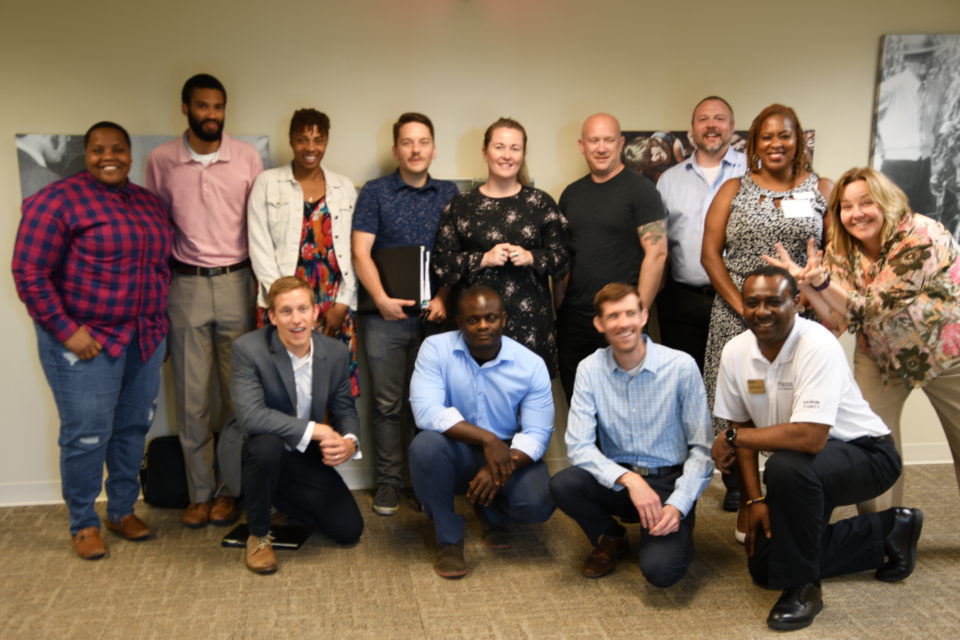Community Economics and Leadership Program (CELP) Graduates Receive Congressional Recognition
Nineteen middle managers and millennials from four community organizations, four city government agencies and three nonprofit agencies recently completed the inaugural Community Economics and Leadership Program (CELP). In addition to earning a Purdue University certificate, graduates received Congressional Recognition from the U.S. Representative for Indiana’s 7th congressional district André D. Carson. CELP is a four-month leadership and capacity building program that enhances a leaders’ ability to understand the economics of their community, develop design and human-centered skills, maximize leadership strengths, and gain improved ability to solve problems and make good decisions.
The final sessions and graduation were completed in June with Terrence Metz, from Rush Facilitation Training and Coaching, as our guest instructor for the facilitation session. I received certification as a “Session Leader” twelve years ago. Terrance and I have remained in contact and shared resources over the years. It was a delight to have this master facilitator instruct the class. He guided participants to practice and understand facilitation mastery, methodology and the leadership it takes to achieve a situation where nobody is smarter than everybody. The key topics learned include launching activities, leadership consciousness, facilitation competence and methodological confidence. Feedback from participants was awesome. The learning and practice sessions were instructive. I facilitated the final class, Influencer: The science of behavior change.
One of the most important capacities we possess is the ability to influence behavior. Yet, most of us do not have a careful way of thinking about influence challenges. The class design saved this session for last because after all that we have learned and experienced it was crucial that we provided participants with the ability to understand and apply the most scholarly, proven and powerful approach to exerting influence—the ability to change our behavior and that of others. The session focused on the three keys to influence:
- Focus and measure. Get clear about results and how they will be measured,
- Find vital behavior. Focus on a small number of vital behaviors that enable achievement of desired results and;
- Engage six-sources influence model. Identify and leverage all the forces influencing the vital behavior to ensure change.
After the presentation, participants met with their respective project teams to incorporate influence practices into their final projects. This session ended with presentation of individual and group projects and then graduation.
The program is needed because most practitioners agree that changes in technology, demographics and societal values have created many challenges and opportunities for new and inspiring leaders. Also, the Millennial Generation (92 million) outnumber the Baby Boomers (77 million) in the American workforce. As digital natives they are skilled in connecting and building relationships. As they move to leadership roles, they need to develop technical skills to influence and empower others to succeed. Our goal is to build a pipeline of purposeful leaders with skills to facilitate collaboration across systems.
Are you are a mid-level local or state government employee, millennial who wants to develop technical skills to empower others, community development organization board member or staff, or an entrepreneur or aspiring community leader? Consider registering for our 2019 class. Registration will open in November.
The eight learning sessions are:
- Building well-rounded teams by maximizing strengths
- Developing essential skills to become conflict competent
- Designing Human-centric solutions to community challenges
- Cultivating “good money” for sustainable community economic development
- Local government primer and UNIGOV
- Developing an entrepreneurial eco-systems in Indianapolis communities
- Facilitation, methodology and leadership
- The Science of Behavior Change
George Okantey is an Extension Community Development educator in Marion County. He can be reached at okantey@purdue.edu.




